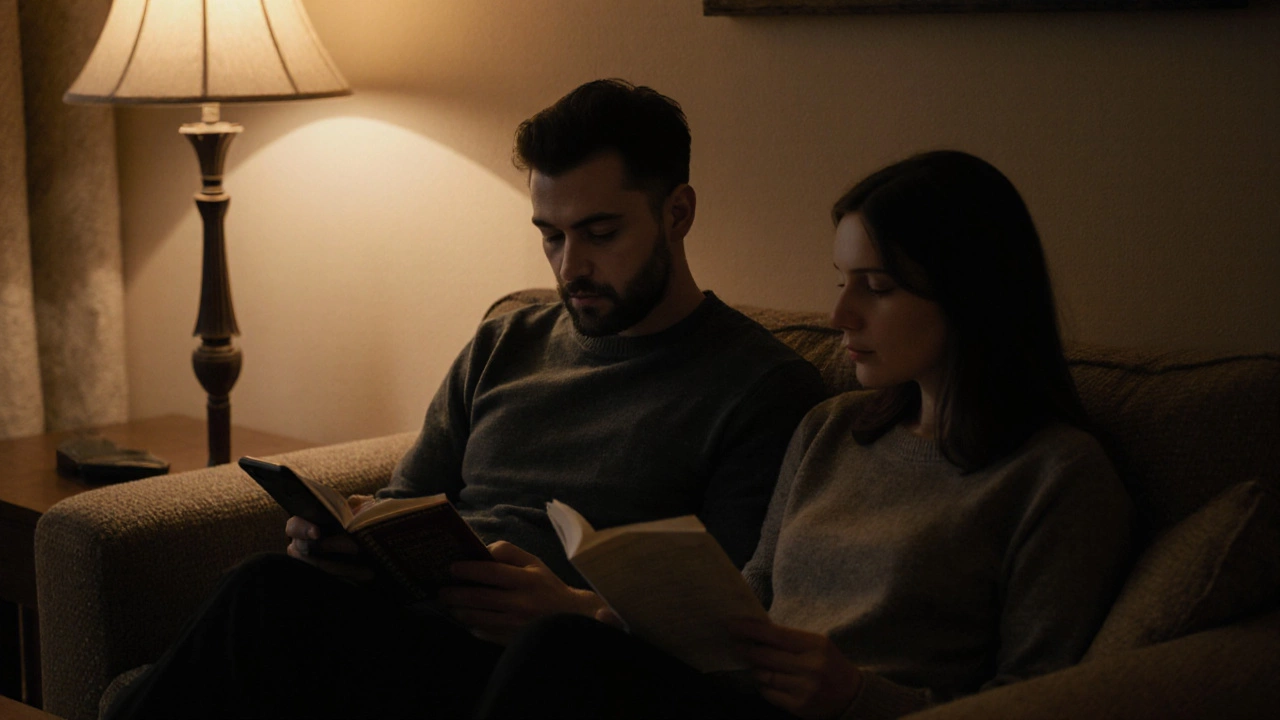Love doesn’t fade because of grand betrayals. It slips away quietly-through silence, neglect, and unspoken resentment. The most enduring relationships aren’t those filled with fireworks, but those built on quiet consistency. If you’re asking how to prevent breakups, you’re already on the right path. The answer isn’t in dramatic gestures or last-minute apologies. It’s in the daily choices you make when no one is watching.
Master the Art of Listening
Listening isn’t waiting for your turn to speak. It’s absorbing what your partner says, noticing the gaps between their words, and responding with presence. A study from the University of California found that couples who practiced active listening reported 30% higher relationship satisfaction over two years. That’s not magic. It’s discipline.Try this: When your partner shares something-whether it’s a stressful day at work or a childhood memory-put your phone down. Look them in the eye. Wait three seconds after they finish before you reply. That pause signals you’re not just hearing, but truly receiving. Most breakups happen not because of what was said, but because what was said went unheard.
Build Emotional Resilience Together
A relationship isn’t a shelter from life’s storms. It’s a partnership in weathering them. When one person retreats into silence under stress, the other often interprets it as rejection. That’s where resentment grows.Instead of shutting down during conflict, practice naming your emotions. Say, “I’m feeling overwhelmed right now, and I need an hour to collect my thoughts.” Then follow through: return, calm and clear, to continue the conversation. This isn’t weakness. It’s emotional maturity. Men who lead with steadiness, not stoicism, earn deeper trust. Your partner doesn’t need you to fix everything-they need to know you won’t disappear when things get hard.
Keep the Small Things Sacred
Breakups rarely come from one big mistake. They come from a thousand small neglects: forgetting to ask how their day was, skipping the morning coffee together, not noticing they changed their cologne. These aren’t trivial. They’re the mortar holding the bricks of your relationship together.Set a weekly ritual. Every Sunday evening, take five minutes to reflect: What did I appreciate about them this week? What did I overlook? Write it down. Not for them to see-just for you to remember. Over time, this habit rewires your brain to notice the good, not just the gaps. A gentleman doesn’t wait for anniversaries to show appreciation. He shows it in the quiet, daily details.

Define Your Boundaries-Then Honor Them
Healthy relationships aren’t about merging identities. They’re about two whole people choosing to walk side by side. When one partner sacrifices too much of themselves-career goals, friendships, personal space-the resentment builds silently. Eventually, it surfaces as withdrawal, criticism, or detachment.Have an honest conversation early on: What do you each need to feel whole outside the relationship? For some, it’s a weekly gym session. For others, it’s an hour of reading before bed. Respect those needs. Don’t frame them as demands. Frame them as essentials. A strong relationship thrives when both people are thriving individually. Your partner doesn’t want a shadow. They want a full man beside them.
Communicate Before You React
Most arguments aren’t about the topic-they’re about the tone. A comment like “You never help around the house” triggers defensiveness. But “I’ve been feeling a bit overwhelmed with the chores lately-can we talk about how we share them?” invites collaboration.Use the “I feel, I need, I’d appreciate” framework. It’s simple, it’s honest, and it removes blame. Practice it before you speak in anger. If you catch yourself about to say something sharp, pause. Breathe. Then rephrase. This isn’t manipulation. It’s integrity. The most powerful men aren’t the loudest. They’re the ones who choose clarity over control.

Invest in Shared Growth
Relationships stagnate when both people stop evolving. If one partner is reading, learning, expanding their horizons-and the other isn’t-the gap widens. It’s not about matching achievements. It’s about matching curiosity.Start a shared project. Take a course together. Read the same book. Visit a museum. Learn to cook a new dish. These aren’t date nights. They’re identity-building moments. When you grow together, you create something neither of you could have built alone. That kind of connection doesn’t break. It deepens.
Know When to Walk Away-And How to Do It With Grace
Not all relationships are meant to last. And that’s okay. A gentleman doesn’t cling out of fear. He doesn’t punish with silence. He doesn’t blame. He recognizes when love has turned to duty, and he acts with dignity.If you’ve tried the above, and the connection is gone-not just strained, but gone-then walk away cleanly. No drama. No public airing. No lingering resentment. Thank them for the time you shared. Wish them well. Then move forward, wiser, not bitter. That’s not failure. That’s strength.
Love isn’t about holding on. It’s about showing up-every day, in small ways-until you realize you’ve built something that doesn’t need to be held. It simply is.
Is it possible to save a relationship after a major fight?
Yes-but only if both people are willing to do the work. A single fight rarely destroys a relationship. What does is the pattern of avoidance afterward. If you’re both still emotionally invested, start with a calm, honest conversation. Focus on what each of you needs to feel safe again. Apologies alone won’t heal it. Consistent, respectful action will.
How do I know if I’m the problem in my relationship?
Ask yourself: Do I feel more drained than fulfilled after spending time with my partner? Do I frequently find myself making excuses for their behavior-or mine? If you’re constantly walking on eggshells, or if you’ve stopped sharing your true thoughts, the imbalance may lie within you. Self-awareness is the first step. Don’t assume blame, but don’t avoid reflection either.
Should I give my partner space if they’re pulling away?
Space can help-but only if it’s not used as a weapon. If your partner says they need space, ask: What kind of space? For how long? And what do you hope to gain from it? Then respect the boundaries you both agree on. If they disappear without communication, that’s not space-it’s avoidance. True space is intentional, not silent.
Can a relationship survive without physical intimacy?
It can-but only if both partners agree on the terms. Physical intimacy isn’t just sex. It’s touch: a hand on the shoulder, holding hands while walking, a hug that lingers. If that connection fades and neither partner addresses it, emotional distance follows. Talk about what intimacy means to each of you. Don’t assume. Don’t resent. Clarify.
What’s the biggest mistake men make in relationships?
Assuming their partner knows how they feel. Men often believe actions speak louder than words. But if you don’t verbalize appreciation, commitment, or concern, your partner may interpret silence as indifference. A simple “I’m proud of you” or “I missed you today” does more than a dozen thoughtful gestures done without explanation.

